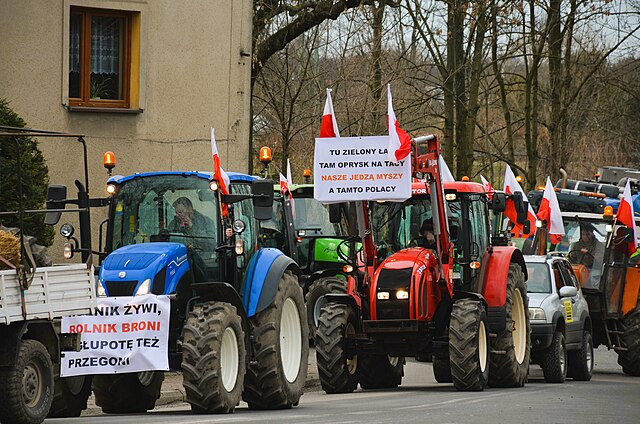Farmers across Europe have escalated their protests, demanding immediate action from policymakers on issues ranging from supermarket price pressures to competition from foreign imports. The protests, which saw significant disruptions in cities like Brussels and Madrid, coincide with a meeting of European Union agricultural ministers in Brussels to address the burgeoning crisis in the sector.
In Brussels, the protests turned tumultuous as farmers clashed with riot police, leading to the use of water cannons against protesters who resorted to throwing bottles and eggs. The Belgian capital witnessed a massive influx of about 900 tractors, causing significant traffic disruptions. The farmers' grievances are multifaceted, focusing on the need for fair revenue, the impact of free trade agreements, and the deregulation that they argue forces prices below the cost of production.
The situation in Madrid mirrored the unrest in Brussels, with Spanish farmers rallying against the EU's bureaucratic hurdles and proposed changes to its Common Agriculture Policy (CAP). Protesters in Madrid, including cereal and beetroot grower Roberto Rodriguez, voiced their frustrations over the excessive red tape and the impracticality of balancing fieldwork with extensive paperwork.
The protests also extended to the Poland-Germany border, where Polish and German farmers united in blocking a key highway, expressing their solidarity against the influx of Ukrainian goods into the European market. This collective action highlights the widespread concern among European farmers about the impact of imports from Ukraine, a sentiment exacerbated by the EU's decision in 2022 to waive duties on Ukrainian food exports due to the ongoing conflict with Russia.
In response to the protests, EU agricultural ministers are deliberating on a set of proposals aimed at alleviating the pressures on farmers. These include reducing farm inspections, possibly exempting small farms from certain environmental standards, and addressing the bureaucratic challenges that farmers face. German Agriculture Minister Cem Ozdemir emphasized the need to simplify the EU's farm policy, which he described as a "bureaucracy monster," and advocated for better compensation for farmers who adopt biodiversity and green measures.
Amid the widespread protests, some farmer groups, such as La Via Campesina, are calling for the establishment of minimum support prices to ensure that the transition to more ecological production methods is financially viable. These demands underscore the complex interplay between economic sustainability, environmental responsibility, and social equity within the agricultural sector.
As the EU grapples with the challenges presented by the protests, the agricultural ministers' meeting in Brussels represents a critical juncture for the future of European farming. The outcomes of these discussions could have far-reaching implications for the EU's agricultural policies, the livelihoods of farmers, and the broader goal of achieving a sustainable and equitable food system in Europe.






